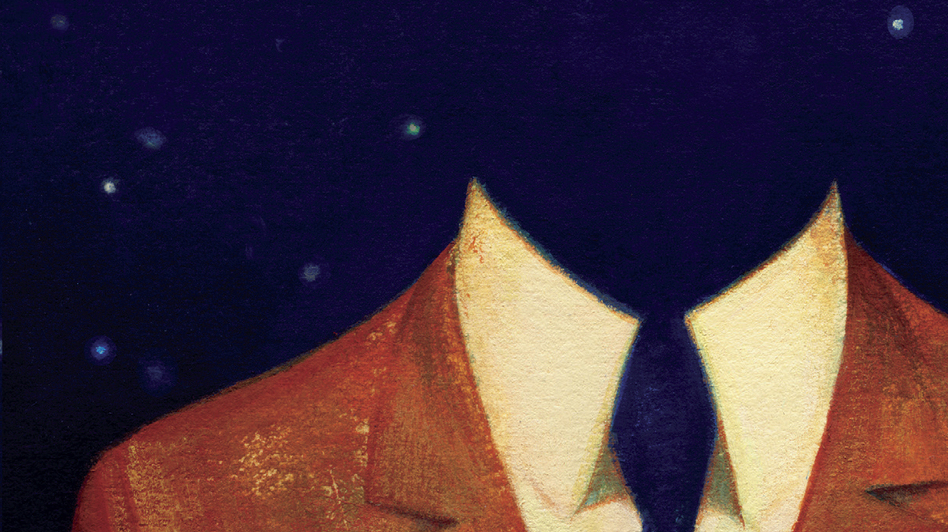Nick Lavery
‘The great problem confounding neuroscience is how the brain becomes the mind. How that 3lb bowling ball makes you feel like a human being.’
This problem sets the tone of Andrew’s Brain, restated and reformulated throughout by the novel’s cognitive neuroscientist narrator as he tries to come to terms with himself as both moral agent and as a function of the titular object. It is also one gaining increasing influence over a more general strain of soul-searching in American culture. E.L. Doctorow’s novel fits into a literary subset long established as a distinct genre, the so-called ‘neuro-novel’, while in 2013 president Obama announced a new, decade-long scientific effort to examine the workings of the human brain. In one sense, this project seems to validate the hopes of Doctorow’s protagonist, for whom the project of understanding human behaviour in such terms comes to be seen as an escape route from his entanglement with the previous administration. While the novel’s choice of setting in the recent past might support a reading in terms of a post-Bush triumphalism, its form structures itself around a constant questioning of such optimism in all its forms. Andrew himself is acutely aware that the possibility of scientific advances solving the great problem of neuroscience is blocked by another question: ‘How can I think about my brain, when it’s my brain doing the thinking?’
Commenting on the contemporary cultural ubiquity of pseudo-neuroscientific models of human behaviour in Neuromania, Paolo Legrenzi and Carlo Umilta situate this trend as the endpoint of a cultural pendulum swing away from the anti-psychiatry and theories of the ‘socially constructed’ self of the 60’s, a supposed turn back to materiality and rational humanism ‘less blustery and rhetorical perhaps, but no less insidious because of this’. Andrew’s frequent digressions on the subject of neuroscience and its implications for his life-story form part of an antagonistic dialogue with his fellow narrator, a psychoanalyst whose interruptions frustrate his attempts to understand himself through a coherent narrative, beginning with his initial attempts to cast the novel as the third-person recounting of the story of ‘his friend Andrew’. Andrew is trapped: by an apparent propensity to bring disaster to those around him, by guilt, and by his own consciousness, his subjective perspective barring him from any stable conclusions on the extent of his culpability in a series of disasters spiralling outward from the death of his child, to the death of his second wife on 9/11, to his involvement with the Bush administration’s response.
The novel builds on this tension through a pairing of a circular interrogation between Andrew and his analyst that often takes the form of a shuffling of incongruous and surreal episodes from his life with an escalating sense of delayed consequences, leading up to a closing revelation of the true extent of Andrew’s entrapment. Andrew’s faith in neuroscience cannot help but be seen as a form of defence, an evasion of the responsibilities of selfhood perhaps latent in the contemporary notion of the self as illusion. The psychoanalytic perspective through which such a reading can be formulated, however, also frustrates the possibility of agency and responsibility in its own way. Doctorow describes his own political outlook as ‘biblical’ – ‘you shouldn’t murder, you shouldn’t steal, that sort of thing’ – and the novel’s treatment of post-9/11 American culture seems preoccupied with the various ways in which an obsession with understanding the self covers the absence of any committed moral stance; Andrew’s descriptions of his old college roommate, in particular, refine this dynamic into a form of bleak humour: ‘His war was not going well. He’d invaded the wrong country. You can’t imagine the anxiety that produces’. For all of Andrew’s faults, his position within the administration and eventual fate reinforce the notion that his concern with the brain and its role in behaviour is not just an evasion of responsibility, but a way of understanding the reality beyond the linguistic frameworks imposed by his analyst and by culture at large. As Doctorow acknowledges, the potential mapping of the relationship between the brain and consciousness could be a ‘glorious intellectual achievement’, but would also represent ‘the end of the mythic world that we’ve lived in since the bronze age, with all these stories we’ve told ourselves about what human life is’. The prospect of understanding human behaviour and consciousness may itself turn out to be another one of those stories- a function of both our need to take responsibility for our actions, and the realisation that any explanation originating in human thought cannot fully embody reality.

